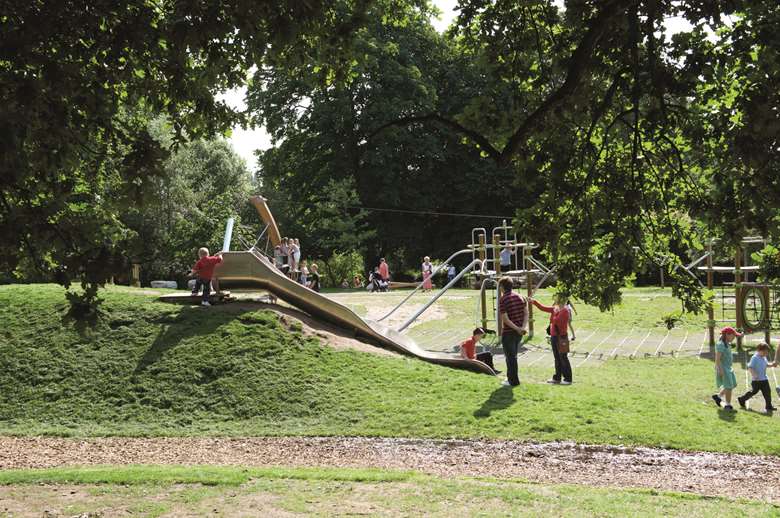Call to embrace risk and revitalise children's outdoor play facilities
Janaki Mahadevan
Monday, April 16, 2012
Decision makers are warned an aversion to risk is leading to a dramatic decline in children's experience of the outdoors

Without a national strategy for play, efforts to maintain children’s outdoor play facilities over the past year have relied largely on community action.
But a report published by The National Trust last month is warning that policymakers, teachers, health practitioners and families must overcome their risk-averse approach to play to halt the “dramatic decline” in children’s experience of the outdoors.
The trust has launched a two-month inquiry into what can be done to increase the number of children playing outdoors, due to conclude at the end of May.
Dr Ute Navidi, outgoing chief executive at London Play, argues that a change in attitude is vital. “Play professionals are a resourceful breed and we have heard many examples of innovative partnerships being forged to assure a future for play in some places,” she says.
“But generally, the future looks bleak for play services. We need a change of attitude towards children – seeing them as worthwhile to invest in rather than to wait until problems arise.”
Service closures
Despite a strong desire within some local areas to keep play spaces open, pressure on time, money and a reduction in trained playworkers has resulted in service closures and more restrictive opening hours.
“The history of adventure playgrounds in London – of which there remain about 90 – shows local people will roll their sleeves up and create and maintain play spaces for children,” Navidi says. “But health and safety and other fears, and pressures on people’s time, mean some resources have to be found to make supervised play areas sustainable, including having trained and skilled playworkers.”
London Play is one of the 17 members of the Free Time Consortium led by Play England. The consortium is funded through the Cabinet Office’s Big Society Fund to work with local volunteers to increase play opportunities.
Catherine Prisk, chief executive of Play England, believes the consortium will lead to an improvement in the quality of local outdoor play services.
“Where the consortia members are generating volunteers around a local play provider, they will be supported to achieve the Quality in Play kitemark,” she says. “We will also be developing young inspectors, who will be auditing play provision and planning decisions and then advising local decision-makers on how to make their services better.”
But are such programmes too little too late? Nottingham charity Playworks, which uses trained professionals and volunteers to run community play facilities, is under threat of closure because of changes to the council’s funding for voluntary organisations. This month, the charity lost its core funding after missing out on a bid to provide voluntary sector infrastructure support.
Wendy Russell, who co-ordinates volunteers at Playworks, believes the loss of outdoor play will affect deprived communities the most. “We know public sector cuts are hitting the poorest hardest and particularly women, children and families,” she says. “Adult-organised opportunities for children to play can help mitigate these hardships – in terms of helping children to become more resilient and more able to cope with a range of emotions and stress.
“The services offered by Playworks are the very ones that can support play provision in these times of cuts. It seems counter-productive to cut funding to such an organisation at this time, since the effects may well cost more in the long run.”
The state of play
- £2m has been awarded to the Free Time Consortium to increase play opportunities for children and young people
- 20,000: Number of volunteering opportunities the consortium hopes to create
- 59% of children wish they could play outside in natural places more
Source: Play England




